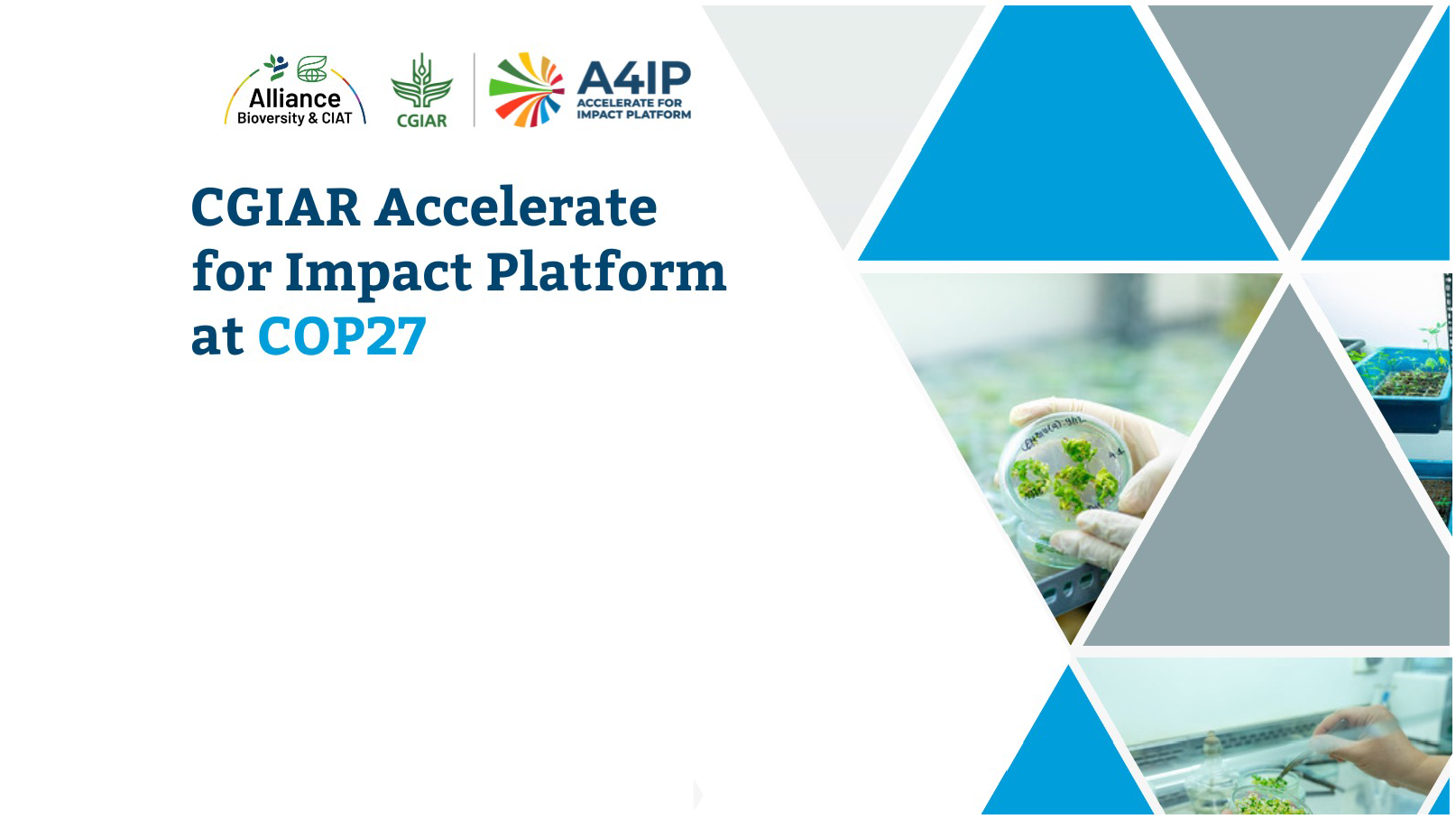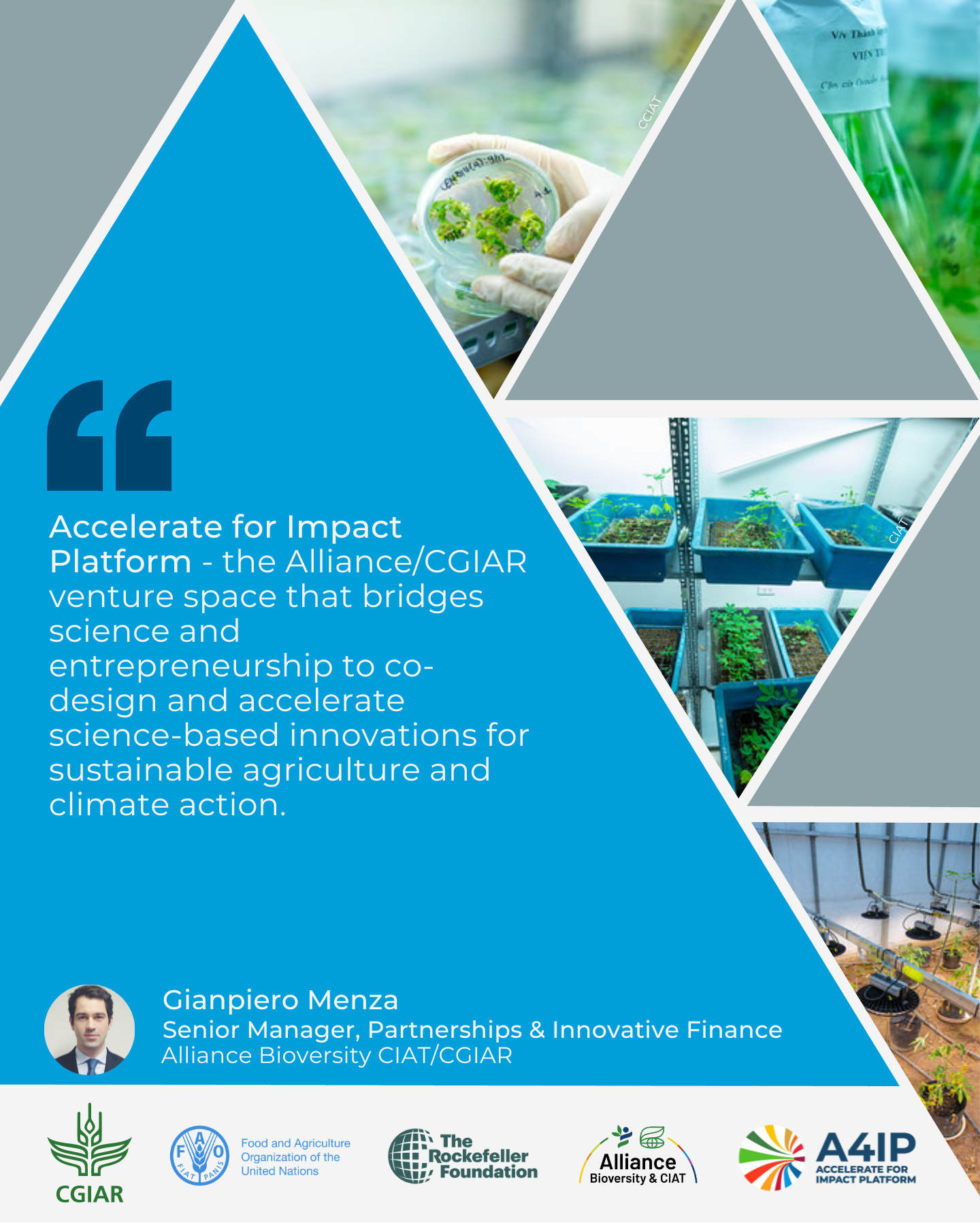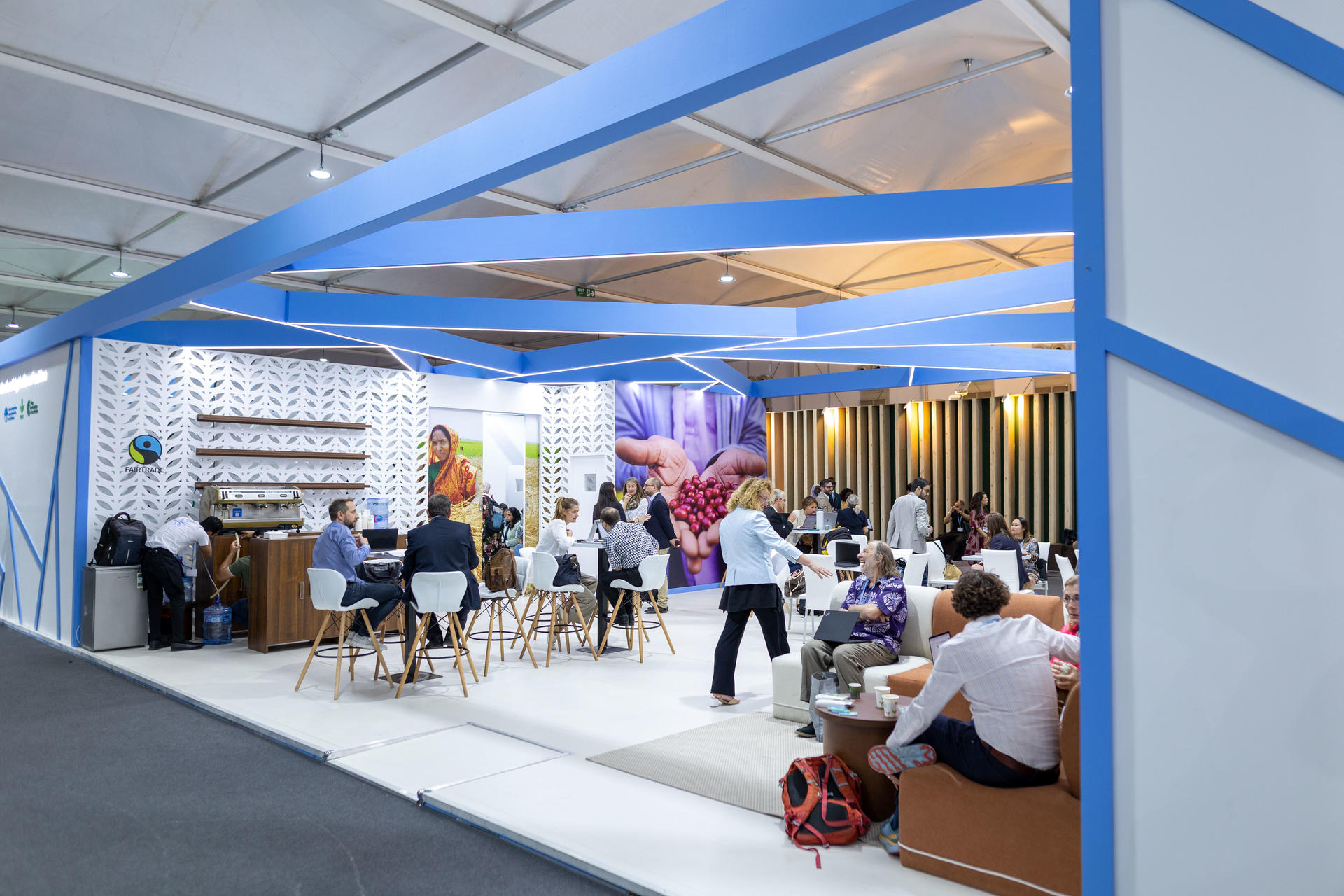Blog On the ground at COP27

Key takeaways on the outcomes of COP27 from the Accelerate for Impact Platform: A spotlight on multi-stakeholder partnerships, youth-led innovation, and more.
This year’s Conference of the Parties of the United Nations Framework Convention on Climate Change (COP27) in Egypt counted more than 45,000 participants from governments, research and academia, civil society, Indigenous Peoples, private sector, and finance who came together from around the world to raise the ambition to accelerate climate action for a zero-carbon future for all.
The CGIAR delegation held strong, pushing forward its mandate to find solutions for the world’s most vulnerable groups who are disproportionately affected by the climate crisis. Among the highlights of COP27, Parties made the ground-breaking decision to establish new funding arrangements as well as a dedicated ‘Loss and Damage Fund’ to financially support vulnerable countries hit hard by climate disasters.
As part of the CGIAR delegation, the Accelerate for Impact Platform (A4IP) joined the debate championing the importance of scaling scientific innovation to address complex, interconnected, and urgent challenges related to agriculture.

As we reflect on the Conference and the decisions made, the Accelerate for Impact Platform shares some of the team’s key takeaways.
1. Agriculture and Food Systems come under scrutiny for their impact to climate change
COP27 saw significant progress on integrating sustainable agriculture and food security in the pathway to overcome climate challenges. For the first time in history, the final decision text referenced food, nature-based solutions, and the right to a healthy environment as a human right by the UN Office of the High Commissioner for Human Rights. It also recognizes “the fundamental priority of safeguarding food security and ending hunger” and that “climate change exacerbates the global food crises and vice versa, particularly in developing countries”. Agriculture and food security also earned their place in the Conference’s Blue Zone, housing three topic-specific pavilions which spotlighted the fragility of agriculture and foods systems vis-à-vis climate change in the middle of a global food crisis.
The CGIAR, FAO and The Rockefeller Foundation jointly hosted the first-ever Food and Agriculture Pavilion; a platform for co-organizers to exhibit their green initiatives. It also served as a networking space and a stage, offering a rich program of over 30 CGIAR-led events in which panelists discussed and showcased innovative solutions to help countries take effective climate action to protect agri-food systems.

Food and Agriculture Pavilion co-hosted by CGIAR, FAO and the Rockefeller Foundation.
2. Multi-stakeholder partnerships will be pivotal to plan and secure large-scale impact-driven climate action
The global scale and complexities of food insecurity and climate change risks calls countries to prioritize the policy actions needed through multi-stakeholder dialogues. Bringing together governments, research, businesses, civil society, and farmers to form collaborative multi-actor processes and partnerships is crucial to tackle systemic problems, remove barriers, and implement long-term solutions.
In a panel at the Food and Agriculture Pavilion on 8 November 2022, representatives from CGIAR, The World Farmers’ Organization, CropLife International, Corteva Agriscience, and EY had an open conversation about how multi-stakeholder partnerships can address food insecurity in the context of climate change through regenerative agriculture. New models of cooperation based on multi-stakeholder platforms can provide food for thought on how the involvement of a broad interdisciplinary audience can open up new opportunities to spotlight on-ground solutions and policy mechanisms combating climate change in the agricultural sector.
Click to Watch the event recording
3. Valorizing youth-led innovation and innovative technologies – an integral aspect of climate action
COP27 marked another milestone for young people, who have been very vocal about climate change activism. Simon Stiell, UN Climate Change’s Executive Secretary called on governments to not passively listen to the solutions put forward by young people, but to incorporate these in decision and policy-making processes.
On 10 November at the Food and Agriculture Pavilion, the CGIAR Accelerate for Impact Platform, partnered with FAO and the World Food Forum, and the International Association of Students in Agriculture and related Sciences in the side event on unlocking the power of youth-led innovation in agriculture and climate-technology to transform the agri-food industry for a greener future. Joining event partners were representatives from Corteva Agriscience, Change for Planet, and AkoFresh.
Panelists discussed how the spread of mobile technologies, remote-sensing services, and distributed computing in the agriculture and food sector are already improving smallholders’ access to information, inputs, market, finance, and training. AkoFresh is an example of a youth-led innovation, providing a solar powered cold storage technology to smallholder farmers in Ghana to prevent post-harvest losses of perishable crops.
Panelists also presented initiatives that could help investors tap into new opportunities, including platforms that aim to increase the efficiency of satellite climate tracking, soil health measurements, and emissions monitoring technology through digitalization. The presence of accelerators, venture capitals, and start-ups at COP27 is the product of the increased appetite of investors for innovations.
Click to Watch the event recording
Building on the positive markers
COP27 was an excellent opportunity for building momentum around climate negotiations and circular economy transition incentives. COP27 showed that many of the solutions, science, and expertise to successfully transform agriculture and food systems to become more climate-smart are already in the system, but all stakeholders must work together more cohesively to take advantage of them. If we are aiming for longer-term impact, science needs to communicate more effectively with policymakers and others in the innovation ecosystem. It is the responsibility of CGIAR, as the global research partnership for a food-secure future, to ensure that science-driven solutions proactively inform global processes around climate action. The Accelerate for Impact Platform, in particular, emerges from COP27 affirmed in its mission to drive food systems transformation and climate action by supporting scientists to strengthen their work within innovation ecosystems and to bring researchers’ ideas to market faster.
